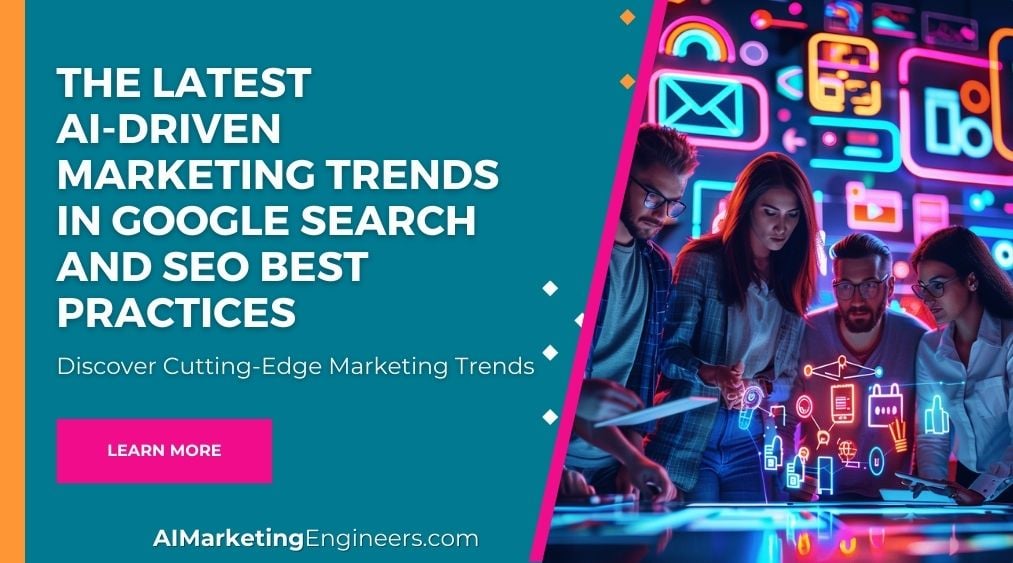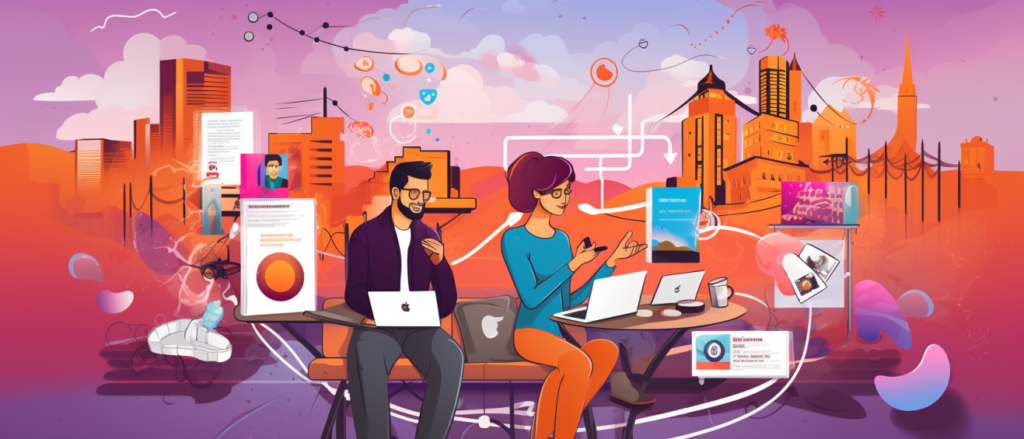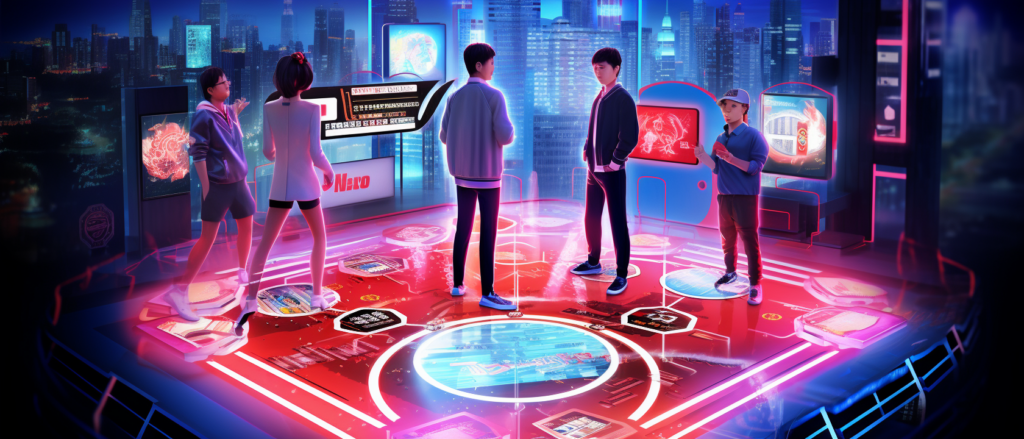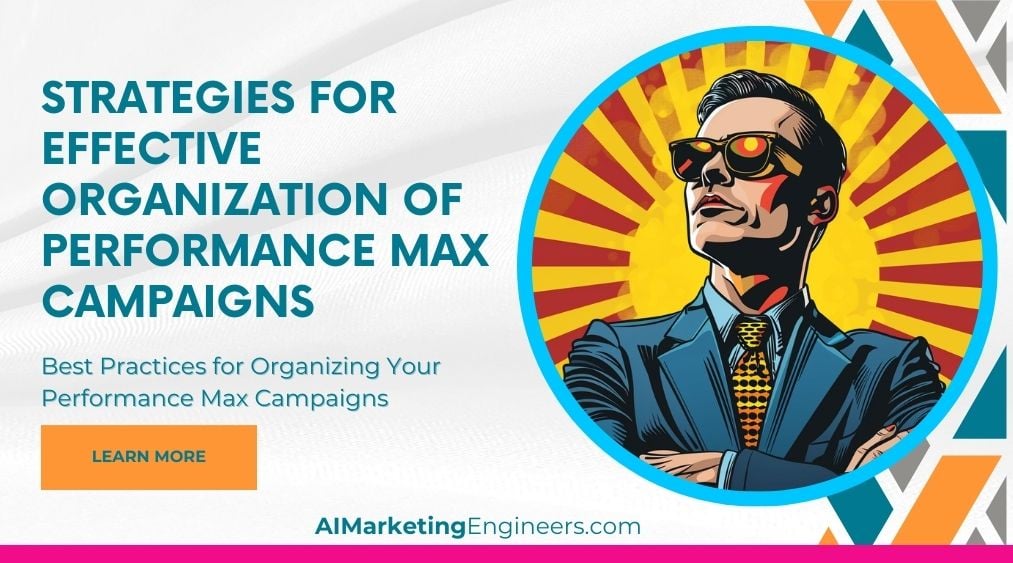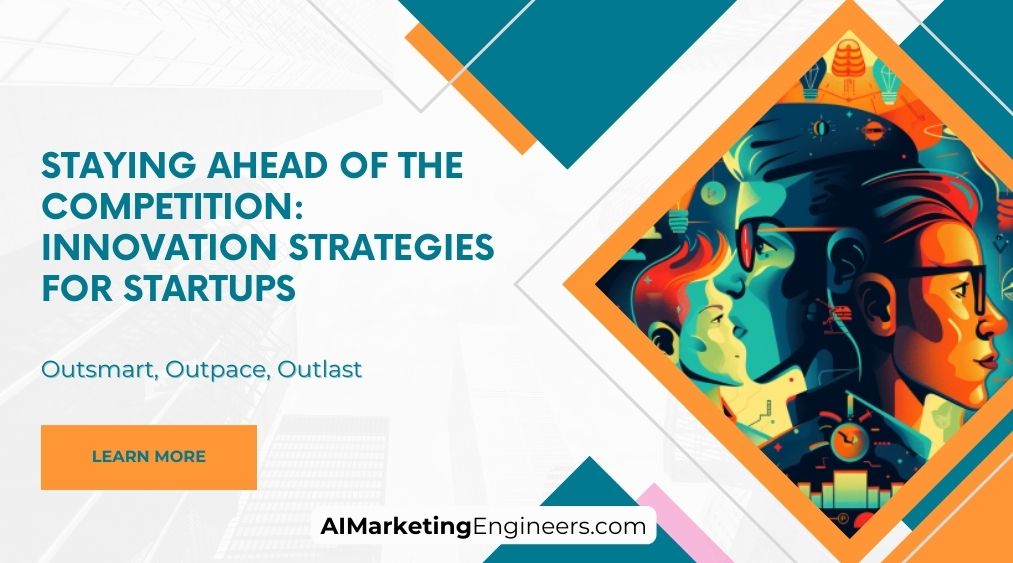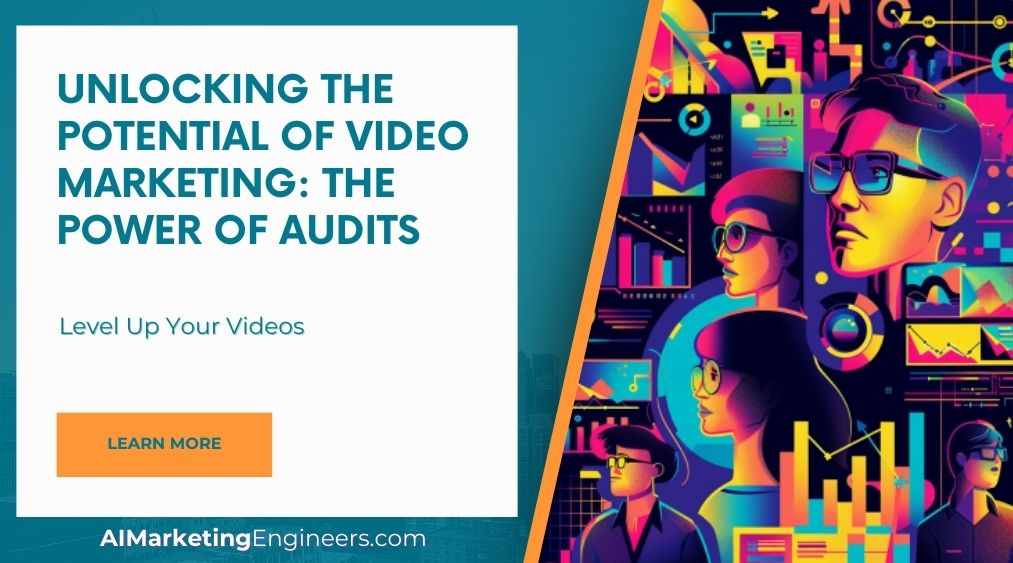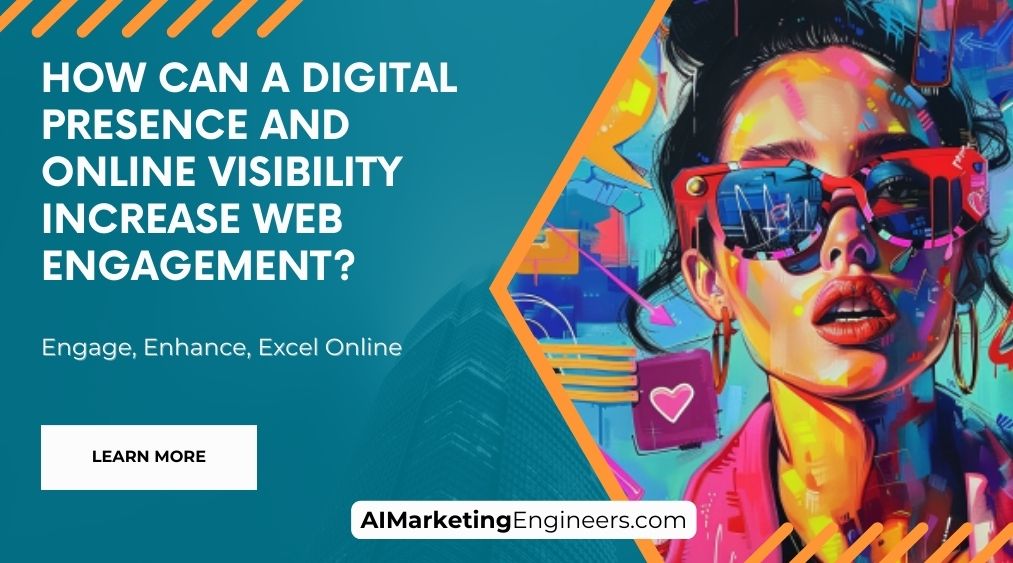Key Takeaways
✅ AI-Driven Personalization and Contextual Relevance: Discover how AI tailors search to users' needs, and learn how to craft content that stands out. With 47% of businesses emphasizing personalized customer experiences, AI is the competitive edge you need.
✅ Impact on Search Engine Results and User Experience: Learn why structured data is your ticket to improved search visibility and why user experience can't be ignored, with 61% of users favoring websites that deliver direct answers.
✅ Adapting to AI-Driven SEO Strategies: Embrace the tools and strategies to thrive in a new era of SEO. Companies utilizing AI for SEO saw a 15% growth in efficiency—find out how to harness the same benefits.
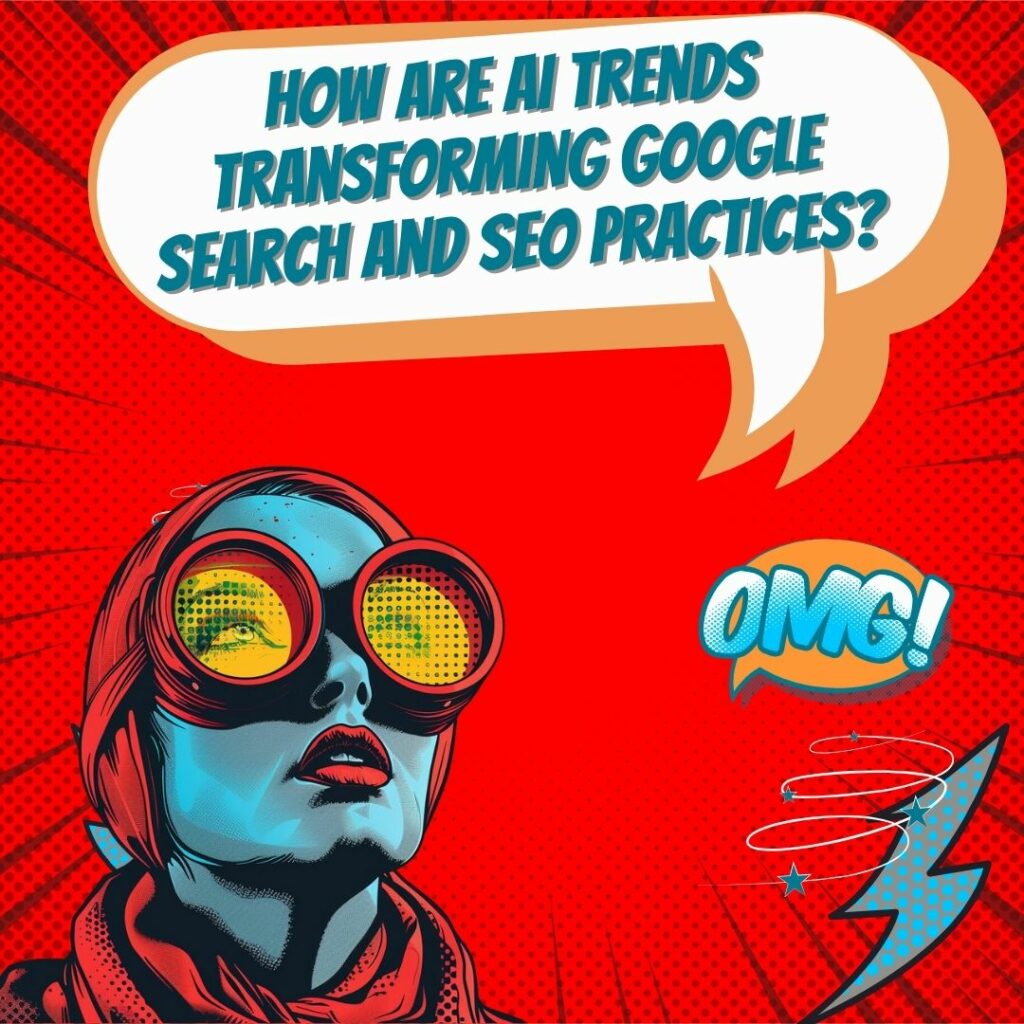
Introduction
Are you ready to ride the wave of AI-powered marketing trends that are reshaping the digital landscape? With technology advancing at a lightning pace, understanding how AI transforms Google Search and SEO isn't just nice to have—it's an absolute must for anyone looking to stay afloat in the hyper-competitive ocean of online presence.
These trends are not just change-makers—they're revolutionaries. Think AI-driven search experiences custom-tailored like a fine suit, making search engine rankings dance to a tune that only the most adaptive can hear. With 63.6% of world-wide web surfers relying on Google search, it isn't just about keywords anymore, it's about context, relevance, and value.
But how can businesses unlock this sea of possibilities? This article is your treasure map, spotlighting key AI advancements that alter the very fabric of SEO tradition. We promise a voyage to undiscovered lands of knowledge where actionable insights and groundbreaking information await. Let's chart the course for unparalleled online visibility and traffic that not only navigates but conquers the AI-driven marketing landscape.
Top Statistics
| Statistic | Insight |
|---|---|
| 25% Decrease in Traditional Search Engine Volume by 2026 | This forecast by Gartner suggests a major shift in how users interact with search technology, moving towards AI-driven solutions. |
| 84% of Searches Impacted by Google's AI | Google's move towards AI summarizes the importance of evolving SEO practices to ensure visibility in a rapidly changing search ecosystem. |
| 58% of Marketers Acknowledge Enhanced Performance with Generative AI | Generative AI is not just a buzzword; it's a tool that is actively improving marketing outcomes, as evidenced by the performance boost reported by the majority of professionals. |
| 54% of Organizations Achieve Cost Savings with AI | More than half of organizations are seeing a tangible return on their AI investments through cost efficiencies, proving the financial viability of such technologies. |
| 9% Enhancement in Customer Engagement Expected | Top executives predict a significant improvement in customer engagement due to AI, which has become a critical metric in business success. |
Transforming Search with Google's AI-Powered Experience
Google has been a household name for years, synonymous with searching the web. But something big is happening that's starting to shift things in a big way for both users and marketers. Google's integration of artificial intelligence (AI) into its search platform is redefining how we find information online. Users are now encountering more intuitive search results shaped by context and behavior rather than just keywords. This evolution means marketers need to think differently about how they get noticed. It's not just about what people are searching for anymore; it's about understanding why they're searching. AI is enabling more personalized search experiences, predicting user needs with greater accuracy. Marketers must now focus on delivering more nuanced, contextually relevant content to stay competitive. This shift highlights the growing importance of user intent in search strategies.
Adapting SEO Strategies with AI for Enhanced Outcomes
In the SEO world, staying stationary means falling behind. With AI stepping into the picture, SEO strategies must evolve or risk becoming obsolete. You've heard it all before – content is king, but AI is making it more like the emperor. SEO pros are tapping into AI to create content that's not only relevant but also deeply engaging, almost as if it knows what you're thinking. SEO is no longer just a game of keywords and backlinks; it's about crafting an experience that speaks directly to the user's intent. And let's not forget the numbers – with AI, data accuracy is reaching new heights, giving marketers a clearer picture of what's working and what's not. AI tools are helping SEO professionals analyze vast amounts of data to identify trends and optimize content. Machine learning algorithms are enabling real-time adjustments to SEO tactics based on user behavior. The integration of AI in SEO is revolutionizing how marketers approach search engine optimization.
Key Insights for Navigating AI-Driven SEO
As Google shifts gears towards an AI-driven engine, marketers are caught in a tug-of-war. On one side, search engines are pushing for more relevant, almost personalized results, using AI to sift through the vast sea of data. On the other side, SEO teams are leveraging the same technology to dig deeper into analytics and user behavior. This battle of wits means one thing – your marketing strategy can't be carved in stone. It needs to breathe, change, and evolve as quickly as the landscape does. Embracing a dynamic, adaptable marketing approach is key to winning this game. AI is transforming how search engines rank content, making adaptability crucial. Marketers must stay informed about AI developments to adjust their strategies effectively. The future of SEO will be dominated by those who can leverage AI to meet ever-changing search engine criteria.
The Vital Role of Original, Value-Driven Content
Imagine you're shouting into a void filled with a million echoes – that's what using the same old keyword stuffing techniques feels like with today's AI-powered search. Google's smarter than that now, and it rewards content that sings a different tune. We're talking about original, value-driven content that doesn't just regurgitate information. It needs to provide answers, insight, even inspiration. Marketers are learning that connecting with their audience means offering something they can't get just anywhere – a unique perspective, a solution, or an experience. That's the content that stands out in the AI age. High-quality content is becoming more critical as AI algorithms prioritize user satisfaction. Engaging content that addresses specific user needs will perform better in search rankings. The emphasis on value-driven content is reshaping how marketers approach content creation.
Expert Tips on Adapting to AI Trends
Conversations with marketing experts bring a recurring theme to light – adaptation is non-negotiable. To play ball in AI's court, understanding shifting user search patterns and crafting content that goes hand-in-hand with these changes is crucial. These experts assert the importance of embracing AI not as a threat, but as a powerful ally that can elevate your search game. The consensus? Keep an eye on the trends, listen to your audience, and create content that resonates both with users and the intelligent systems that guide them. Staying updated on AI advancements will help marketers maintain a competitive edge. Implementing AI tools can streamline content creation and optimization processes. The ability to adapt quickly to AI-driven changes is becoming a defining factor for success in digital marketing.
Staying Ahead in the AI-Driven Marketing Landscape
In the end, it's clear that AI is not just a passing cloud in the marketing sky. It's set to rain down opportunities for those ready with their buckets outstretched. Staying ahead of the curve in this AI-driven world requires a balance of eagerness and wisdom. Marketers who look forward, anticipating the shifts and integrating technological advancements into their strategies, will be the ones leading the parade. Embracing AI isn't just about survival; it's about thriving in a constantly evolving digital terrain. Proactive adaptation to AI trends will ensure marketers remain competitive. Leveraging AI for predictive analytics can provide a significant advantage. The marketers who embrace AI's potential will set the standard for future marketing practices.
AI Marketing Engineers Recommendation
Recommendation 1: Leverage AI-Assisted Keyword Research Tools for Enhanced Content Strategy: Utilize cutting-edge AI-powered keyword research tools such as Ahrefs, SEMrush, or Google's Keyword Planner to delve into data-driven analysis for your content strategy. These tools harness machine learning to predict search trends, providing insights into what potential customers are searching for. By identifying keyword patterns and user intent, you can create content that's not only relevant but structured to rank well in search engine results. For instance, data shows that long-tail keywords have a 3-5% higher click-through rate than generic searches, making them valuable for targeting specific audiences.
Recommendation 2: Optimize for Google's AI Algorithms by Creating Quality, User-Focused Content: Google's algorithms, like BERT and RankBrain, are increasingly sophisticated in understanding the context and relevance of content. Create engaging, value-packed content that resonates with your audience's needs and questions. According to recent statistics, comprehensive content that addresses user intent can result in up to a 2X increase in time spent on your website. Websites with high dwell time often signal to Google a higher quality resource, potentially boosting your SERP (Search Engine Results Page) ranking.
Recommendivation 3: Implement AI-Driven Chatbots to Improve User Experience and SEO: Enhance user experience and aid in SEO efforts by integrating AI-driven chatbots on your site. Chatbots can provide immediate answers to user queries, keeping them engaged on your site longer, which is a positive SEO signal. Additionally, chatbots can collect invaluable data on user needs and behaviors, informing your SEO and content strategy with actual user insights. A study found that businesses using chatbots increase sales by an average of 67%, indicating the powerful dual benefit of improved user experience and revenue generation.
Relevant Links
- AI-Powered Digital Marketing: Transforming Strategies with Advanced Technology
- Navigating the Digital Landscape: Analytics and User Behavior in China
- Conquer Chinese SEO: Integrating WeChat and Baidu for Visibility
- Multilingual Mastery: SEO for Germany's Diverse Market
- AI and VR: Cutting-Edge Digital Marketing in China
Conclusion
As we've seen, Google's AI-powered search experience is not just a small step forward; it's a giant leap into the future of how we find information online. Marketers, now more than ever, need to understand that it's not just about keywords anymore. It's about understanding your audience on a deeper level, creating content that sings and resonates, and ever-changing SEO strategies that are intelligent, nuanced, and, above all, user-focused.
The significant shift towards AI-driven SEO highlights the importance of adaptable and dynamic strategies. SEO professionals aren't just playing a game of catch-up with algorithm updates—they're now expected to be maestros orchestrating a symphony of content that's informed by AI-enhanced insights and data integrity. What’s the core of this musical masterpiece? Original, value-driven content that stands out in a crowded space and offers real answers to real people.
Navigating this AI-infused terrain means that brands and marketers must invest in a firm grasp of evolving user search habits and preferences. Embracing AI-powered search tools can transform a daunting task into an opportunity for innovation and cutting-edge marketing strategies. With the right approach, the alignment of AI trends and user-centric content can propel a brand's visibility and relevance to new heights.
So, what's the sidewalk chalk drawing we need to step back and appreciate? It's this: integrating AI advancements into marketing efforts isn't just savvy; it's essential for staying competitive and relevant. As we look to the horizon, it's clear that those who can harmoniously blend human creativity with the precision of AI will be the ones leading the march into tomorrow's marketing wonderland. Will you be one of them?
FAQs
Question 1: What is the impact of AI on search engines?
Answer: AI is transforming search engines by incorporating generative AI models that provide more comprehensive and informative search results, shifting the focus from keyword-centric strategies to brand storytelling and AI adaptation.
Question 2: How does AI change SEO strategies?
Answer: AI-powered search engines require SEO professionals to adapt by creating original, value-driven content that aligns with user search patterns and incorporates brand-centric storytelling.
Question 3: What is the role of generative AI in search?
Answer: Generative AI models like Google's Search Generative Experience (SGE) provide quick, context-rich summaries of web content directly in search results, enhancing user experience and requiring SEO teams to adapt their strategies.
Question 4: How does AI-powered search impact content creation?
Answer: AI-assisted content deployment ensures content remains relevant, fresh, and in sync with rapidly changing digital landscapes, allowing SEO teams to focus on strategic thinking and in-depth data analysis.
Question 5: What is the significance of data integrity in AI-driven SEO?
Answer: Ensuring the quality and proper management of data fueling AI tools is crucial, as generative AI models can enhance their capabilities by using data inputs, adding layers of complexity to AI usage.
Question 6: How does AI enhance SEO efficiency?
Answer: Generative AI automates routine tasks and drafts initial content, giving marketing teams the latitude to refine their approaches and consistently deliver high-quality, relevant content.
Question 7: What are the key elements of successful AI-powered SEO?
Answer: Successful AI-powered SEO involves creating original content that explains its purpose, provides unique perspectives, and answers the "so what?" question, ensuring value for both users and search engines.
Question 8: How can marketers mitigate the impact of AI-driven search?
Answer: Marketers should integrate their marketing efforts across teams, focusing on reputation, reviews, and location, and ensuring that their content reflects search behaviors and user intent.
Question 9: What is the importance of staying ahead of AI updates in SEO?
Answer: Staying ahead of AI updates in SEO requires foresight, innovation, and adaptability, leveraging advanced analytics and data insights to understand user behaviors and preferences.
Academic References
- BrightEdge. What Exactly is AI in SEO? Retrieved from BrightEdge website. This source delves into how generative AI revolutionizes SEO by enhancing content generation, underscoring the importance of SEO in marketing engagements, and highlighting the critical aspect of maintaining data accuracy.
- CMSWire. Marketers: What's Your AI-Powered Search Strategy? Retrieved from CMSWire website. This piece examines the shift in SEO strategies due to AI innovations, moving from keyword-focused approaches to those centered around brand narratives and AI integration, prompting marketers to construct genuine content brimming with value.
- StudioID. How Google's AI Search Will Change Marketing Strategy. Retrieved from studioID website. The article explores the implications of Google's AI-driven search on marketing, suggesting that well-rounded marketing strategies now must factor in reputation, physical location, and social media elements due to more nuanced and opinionated search results.
- Seafoam Media. Navigating Google's latest enhancements to its Search Generative Experience (SGE). Retrieved from Seafoam Media website. This resource offers insights into Google's Search Generative Experience, how it generates succinct, contextually rich summaries, and the necessity for marketers to adapt by utilizing complex analytic tools and data insights.
- LinkedIn. Increase SEO Google Search Results with AI in Search Trends. Retrieved from LinkedIn. Analyzing historical search data, this source explains how AI can project future search trends, equipping marketers with the means to customize their strategies more meticulously and remain at the forefront of the digital arena.
